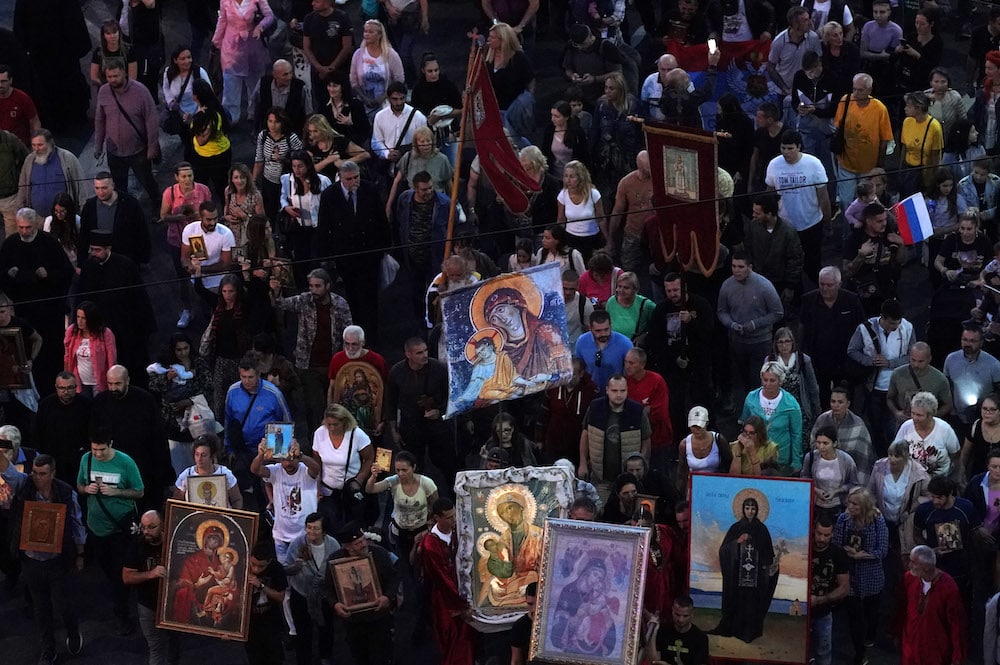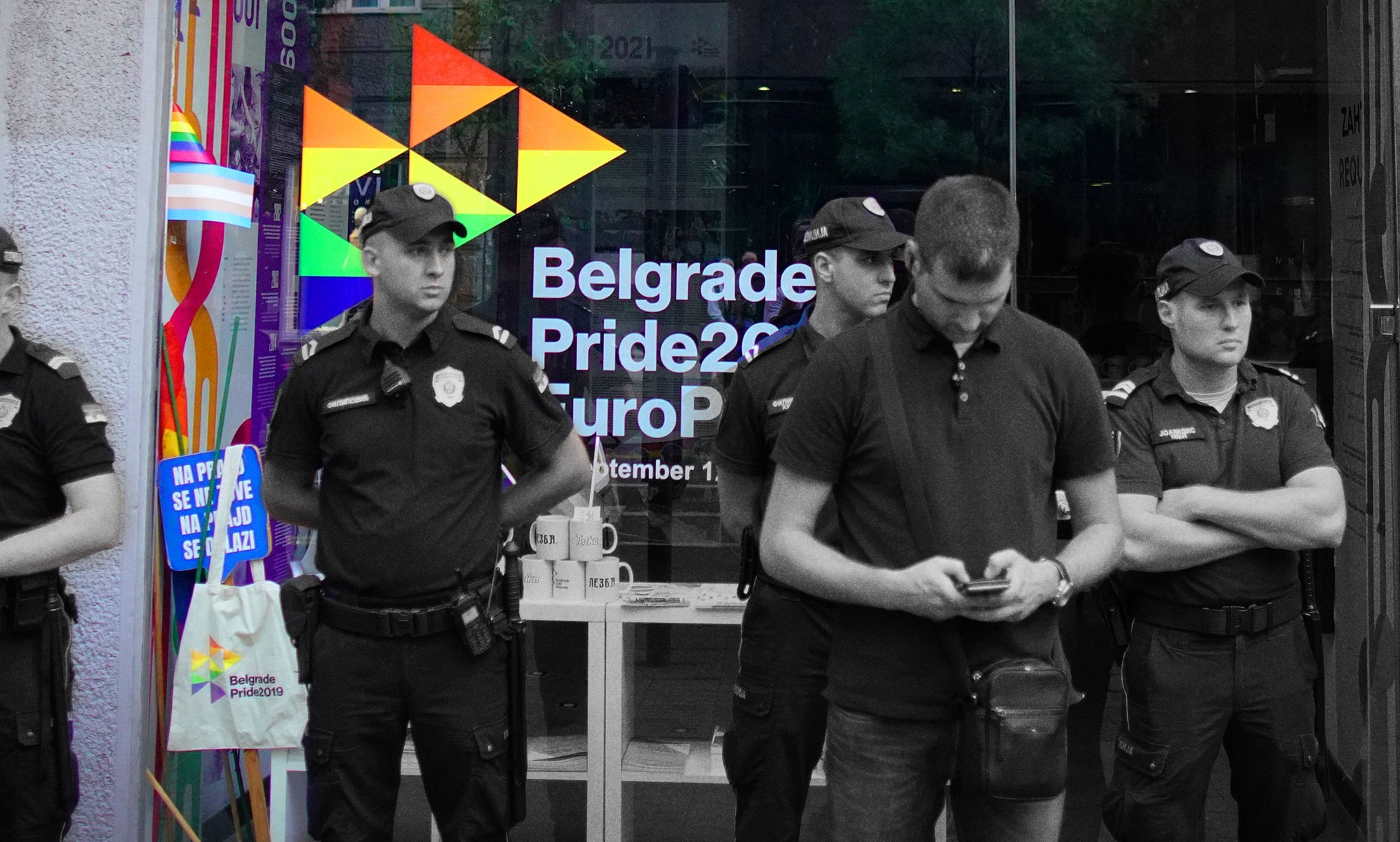Police secure serbian LGBT Info centre during the ‘Litiya for salvation of Serbia’ in Belgrade. (Getty)
Politicians from across Europe have condemned the Serbian government over the effective ban of this year’s EuroPride.
Serbian police announced a ban on the route of the march on Tuesday (13 September) after weeks of hostile back-and-forth between EuroPride organisers and the Serbian government.
The decision to host EuroPride parade in Belgrade has been met with protests by anti-LGBTQ+ groups, including clergy from the Serbian Orthodox Church, and calls for violence against the queer community.
The ban came after president Aleksandar Vučić claimed the event would be cancelled – only for organisers to defy him.

EuroPride president Kristine Garina called the decision “anti-constitutional” while anticipating openly-gay Serbian prime minister Ana Brnabić‘s address at the International Human Rights Conference on how “Serbian authorities have given in to the bullies”.
Footage from the conference revealed the backlash against the decision to ban the route, with attendees standing and chanting “we want Pride” as the prime minister entered the room. Others said: “This is not Stonewall – this is Belgrade in the 21st century.”
According to N1, Brnabić said: “It’s good to talk and I don’t think this is a dialogue,” while claiming that she is “probably the only person discriminated against by both communities”.
“I am doing my best,” she continued over repeated heckling by the crowd. “I have increased the visibility of the community. I am pushing the boundaries by at least a meter, you do the same and things will be equal for everyone.”
After Brnabić‘s address, Garina said: “The reaction in the room to [Ana Brnabić] clearly shows that the LGBTQI+ community in Serbia is not willing to just accept the ban of [the EuroPride] march this coming Saturday. The authorities must ensure it happens safely!”
Banning pride is anti-constitutional. It’s been ruled by the Serbian court several times. The ban will be appealed in court and will be overturned. Again. Solidarity with @belgradepride! #EuroPride2022 @EuroPride https://t.co/qUjOrXzwC2
— Kristine Garina (@KristineGarina) September 13, 2022
Serbia is vying for membership to the European Union, and in response to the ban several members of the European Parliament (MEPs) have urged the government to act.
Irish MEP Maria Walsh said in a statement: “Thousands of LGBTI+ people and their allies have already arrived in Belgrade to take part in EuroPride, and at this point, the plan is that everyone will gather on Saturday, even if we cannot march.
“Pride demonstrations are a hallmark of LGBTI+ activism and a pillar for social visibility.
“Equally, they are political demonstrations during which the community voices its concerns, highlights its achievements, and give the opportunity to its members to demonstrate in favour of equality.”
Walsh was one of the 145 MEPs who signed a letter to the Serbian leadership condemning the ban.
Additionally, European Parliament president Roberta Metsola made it abundantly clear that those MEPs would be heard in an address on Wednesday (14 September) where she said: “We still need Pride. Too many people still live in fear. Too much discrimination still exists, and I would like to inform you that I have written to the authorities in Serbia to ensure that the letter signed by so many colleagues in this house reach the right persons.”
Anti-LGBTQ+ protesters marched through the streets of Belgrade earlier this month in opposition of the planned EuroPride event.
The choice for Serbia to host EuroPride came amid negotiations for the country to gain EU membership. Serbia has been attempting to join the union since 2009 but has been blockaded by several clauses stating it does not currently meet in the European Convention of Human Rights – including its history of banning Pride parades.
But after several peaceful Serbian Pride parades were permitted in recent years. EuroPride organisers took an opportunity to test the waters in 2019 by selecting Belgrade as the 2022 host. It is unclear how this ban will affect EU membership negotiations, but judging from the reaction of European figureheads across the continent, things could take a turn for the worse.
